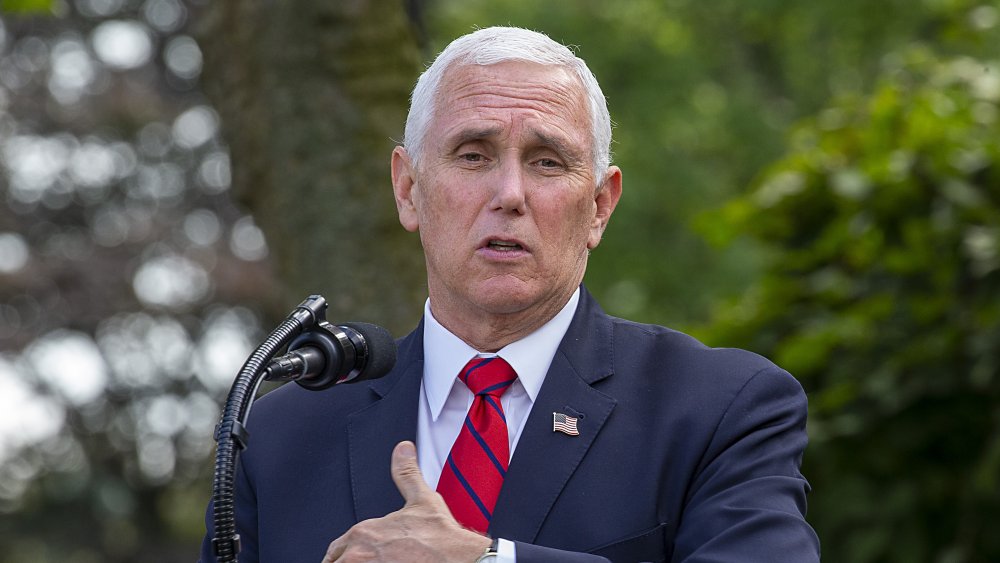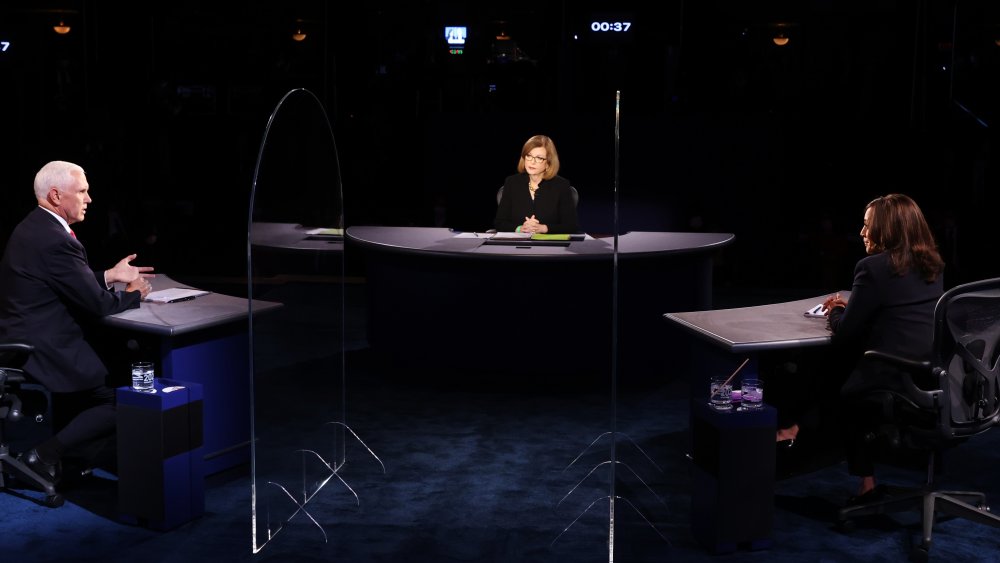Does Mike Pence Have COVID-19?
Does Vice President Mike Pence have COVID-19? Some might argue it's a valid question considering, as of this writing, at least 27 people in Trump's orbit tested positive for the coronavirus, as The Guardian noted. However, the Centers for Disease Control and Prevention (CDC) cleared the vice president to participate in the VP debate on Oct. 7, 2020, in Salt Lake City, Utah, as he tested negative for COVID-19 before the event.
Before Pence's negative test on Oct. 7, there was growing concern about his health, as he reportedly attended multiple COVID-19 infected events. Pence was part of President Trump's debate preparation, and he attended the Sept. 26, 2020 event to nominate Amy Coney Barrett to the Supreme Court, which some have nicknamed the "Rose Garden Massacre," according to International Business Times. Furthermore, Newsweek reported that the VP's head of communication, Katie Miller, left Salt Lake City on the morning of the debate to quarantine. Why? Miller's husband, Trump administration senior advisor Stephen Miller, tested positive for COVID-19 on Oct. 6, 2020, CNN reported. Needless to say, Miller's results raised the risk for VP Pence and the Trump campaign overall.
Although Pence and California Sen. Kamala Harris both tested negative for COVID-19 before the debate, there were still questions about how they'd stay safe during the event. Here's everything we know about the safety precautions taken.
Safety came first at the vice presidential debate
Both California Sen. Kamala Harris and Vice President Mike Pence agreed to adhere to safety guidelines at the vice presidential debate. The candidates stood behind plexiglass barriers to stay protected, and they consented to stand 12 feet apart. But are plexiglass and distance enough to stay safe from COVID-19? Virus experts told The New York Times that plexiglass is "useless" and "the barriers will do nothing to protect Ms. Harris if Mr. Pence is infected and exhaling virus that can be carried through the air."
Additionally, on Oct. 5, 2020, the CDC announced new information about the spread of COVID-19. The CDC's website was updated to reflect that COVID-19 can sometimes be spread by airborne transmission. According to the CDC, "Some infections can be spread by exposure to virus in small droplets and particles that can linger in the air for minutes to hours. These viruses may be able to infect people who are further than 6 feet away from the person who is infected or after that person has left the space."
Of course, we hope everyone at the debate walks away virus-free.


